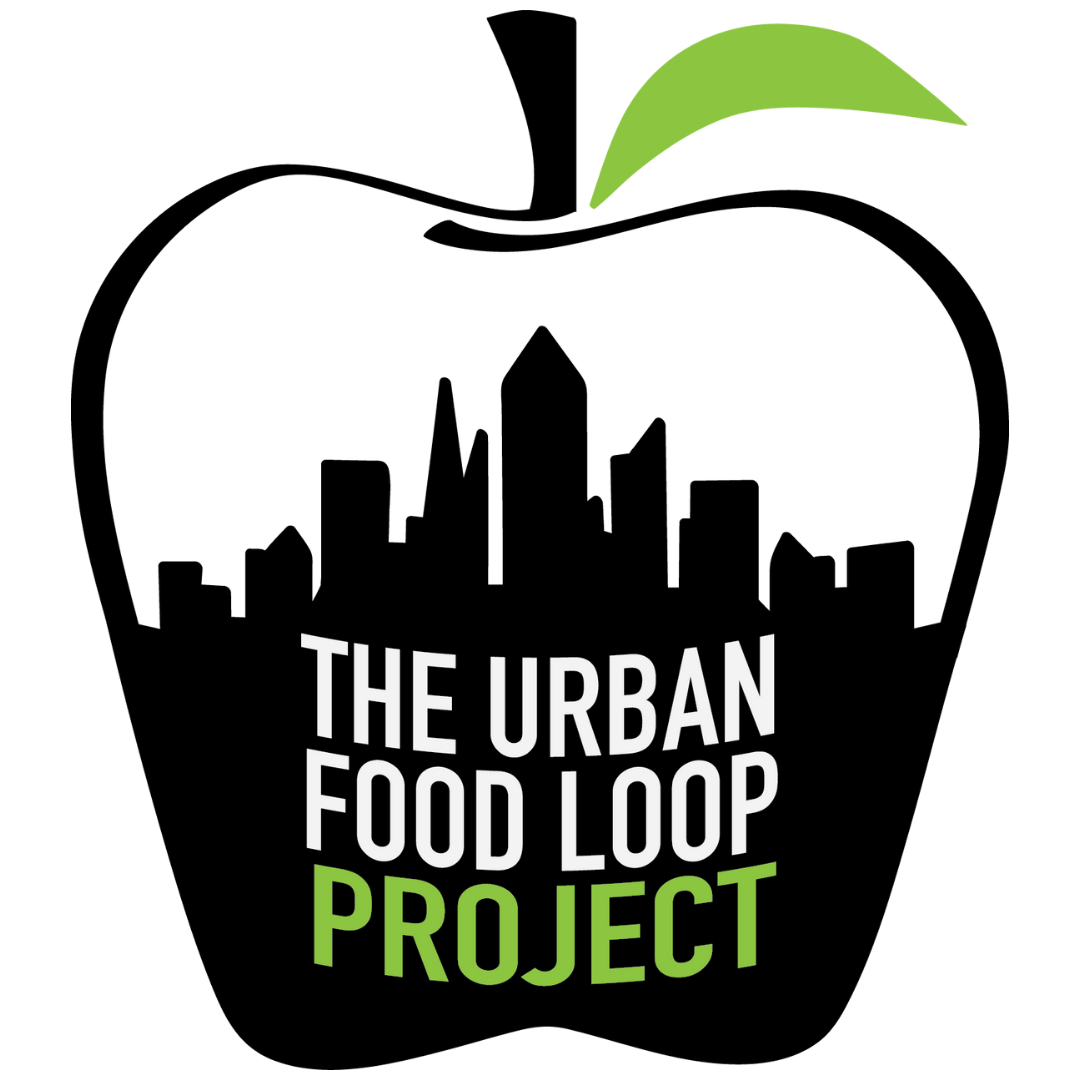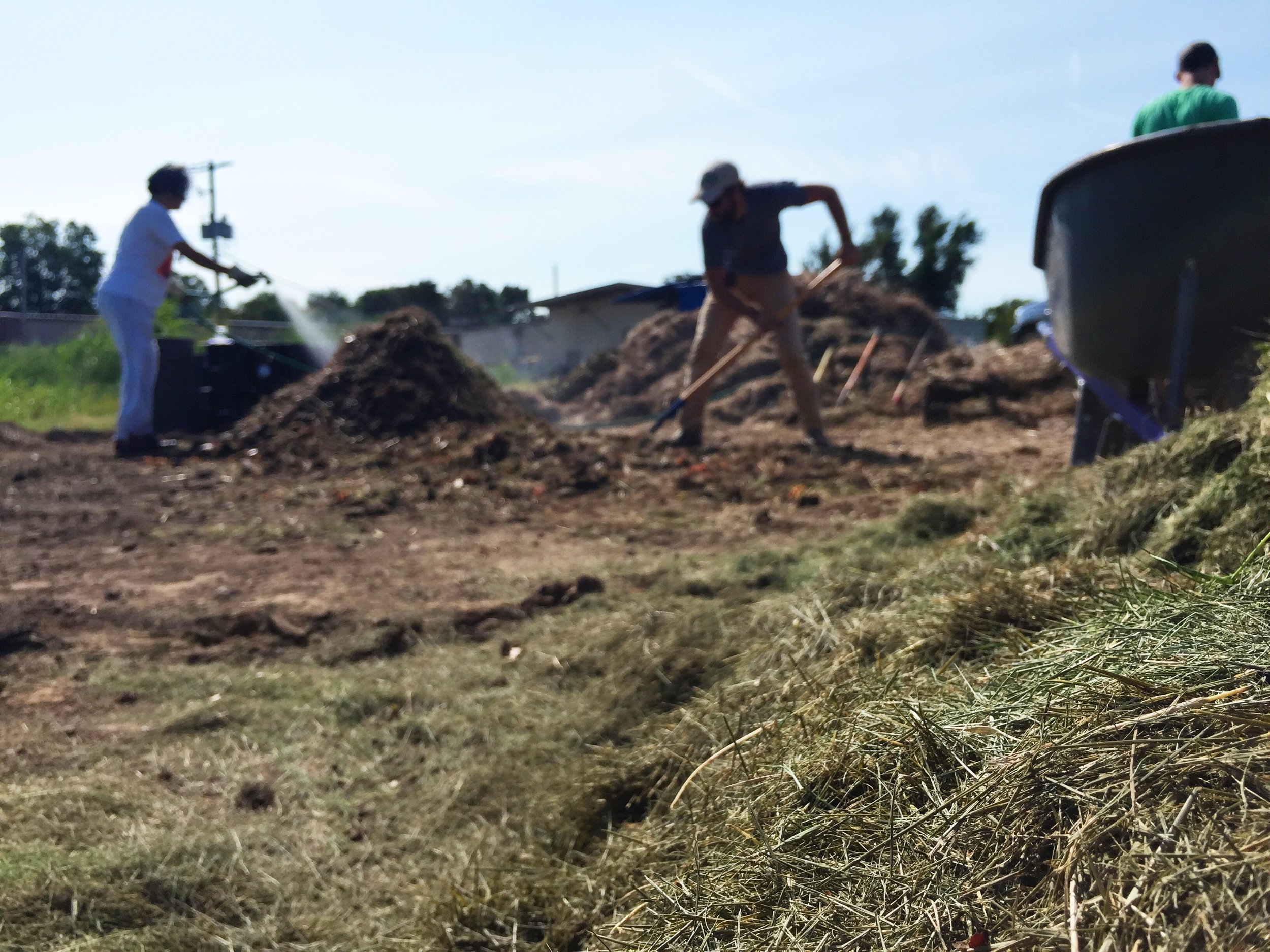The Urban Food Loop project will turn the problem of food waste in urban areas into the solution of bio-complete compost and bio-complete compost tea for Farmers and Gardeners in both urban and rural areas across central arkansas.
According to the USDA ERS, 12.8 percent of U.S. households were food insecure at some time during 2022. The 2022 prevalence of food insecurity was statistically significantly higher than the 10.2 percent (13.5 million) in 2021. As of 2023 Arkansas ranks number one in food insecurity with a rate of 16.6% of Arkansans considered food insecure.
According to food waste statistics aggregated by Footprint.org, 40% of food in the United States goes to waste each year. Food waste makes up 60% of the residential waste stream (after recyclables are separated). Food waste in landfills breaks down anaerobically, and it produces 14% of human caused emissions of methane, which is 21-23 times more potent than carbon dioxide in terms of greenhouse gasses. The UK based Waste and Resources Action Programme estimates that every 1 ton of food waste = 3.8 tons of greenhouse gas emissions. According to the EPA, in 2019 39 million tons of food was landfilled in the U.S., and not even 5% of food waste in the U.S. is composted.
To compound the issues of food insecurity and food waste, at the current rate of soil degradation, scientists estimate that Earth only has 60 years of topsoil left. (Time Magazine) This type of degradation is due to conventional techniques of tilling and spraying herbicides and pesticides, techniques that kill the soil biology and leave crops almost completely dependent on chemical inputs(many of which are directly and causally linked to cancer in humans).
Modern agriculture relies on chemical inputs so much that “more than 90 percent of Americans have pesticides or their byproducts in their bodies, mostly from eating conventionally grown fruits and vegetables''. According to the Wall Street Journal, about 65% of farms in the US use Roundup, whose main ingredient is glyphosate, which is directly linked to cancer in humans. Compounding the issues related to the use of herbicides and pesticides is the fact that only 13% of all farmers use no-till methods. (Farmers.gov) Tilling and other conventional soil management practices account for half of agricultural emissions, which according to the EPA, agricultural emissions account for 10% of total greenhouse gas emissions. According to scientists, just cutting carbon emissions is not enough to combat climate change–we must also sequester an unprecedented amount of carbon to offset our “legacy load” of carbon. (USGS.gov)
Composting food scraps into bio-complete compost reduces landfilling, cuts methane and carbon emissions, and instills sustainability into everyday practices for people all along the food supply chain. Bio-complete compost tea is an all natural, biologically safe alternative to synthetic fertilizers, herbicides, and pesticides, and when combined with cover cropping techniques, eliminates the need for tilling all together, completely restoring degraded soils, while increasing crop yields up to 150%. (SoilFoodWeb.com) When land applied (using a manure spreader or similar equipment), one cubic yard of bio-complete compost can cover 1-2 acres of cropland depending on crop type. The same one cubic yard, when made into bio-complete compost tea, can treat up to 650 acres at 10 gallons an acre (midwestbiosystems.com) Eliminating food waste from landfills and training growers to make and use bio-complete compost tea will reduce greenhouse gas emissions while increasing soil health, carbon sequestration, and food production for growers. Consumers will benefit from increased availability of locally grown produce free of chemicals. Making bio-complete compost from food scraps in urban areas is a simple, actionable, and highly impactful solution to many problems in our modern food system.
Not all compost is created equal. In Central Arkansas the compost created at the two large commercial compost facilities is contaminated with shredded plastic bags which lead to PFAs in soils and crops. Furthermore, available commercial compost is still steaming hot when delivered which is harmful to crops. Even after it cools down, the commercially available compost lacks the microbiology needed to turn finished compost into bio-complete compost tea. Most conventional soil tests measure nutrients (like NPK) in soils. Soil Food Web soil tests measure soil microbiology (bacteria, fungi, protozoa) instead of nutrient content. The Soil Food Web approach teaches growers to take soil samples from their land, identify and count microorganisms, and create tailored compost teas to increase beneficial microorganisms. When beneficial microbes are increased and balanced in soils plants can pull up sufficient amounts of nutrients from mineral deposits in the subsoil(soilfoodweb.com). This project will rely on both Dr. Elaine Ingham’s Soil Food Web approach of making brewed compost tea and MidWest Bio systems approach to making compost tea extracts.
MidWest Biosystems Compost Tea Extraction is a process “that removes the valuable microbial and non-microbial contents of high quality compost and places it into a water suspension. An activator solution is added to the extracted tea just prior to field application which stimulates the microbial population and starts rapid microbial reproduction. With the extraction process, the rapid microbial reproduction takes place on the leaves of the plant and in the soil. These natural environments allow all of the extracted microbe species to rapidly reproduce” (midwestbiosystems.com). Because the microbes in compost tea extract are in a dormant state the extract can be stored for up to 3 months before applied.
Dr. Ingham’s Soil Food Web approach to brewing compost tea is different from the extracting process in that brewing uses about 3 times less compost as extraction but must be applied within 24 hours. Brewing aims to expand or multiply the existing microbe population in the brew itself by bubbling air through water to increase the amount of oxygen and by the addition of microbial food sources. The Soil Food Web approach “is at the forefront of new soil health management practices...and if implemented on a global scale, [could] return atmospheric carbon to the safe level as identified by the IPCC.” (soilfoodweb.com)
Both brews and extracts can be applied through drip irrigation or applied foliarly using a Grow King Sprayer with a nozzle engineered not to harm microbes as the tea is sprayed onto crops/soil. The Soil Food Web method is best for growers who can brew compost tea on site and apply within 24 hours and the MidWest Biosystems approach to extracting compost tea is best if growers can not brew and apply within 24 hours. (MidwestBioSystems.com)
Read Admire
Executive Director
Growing up I was a very picky eater. It wasn't until I experienced serious health issues that I looked closely at my diet. I needed a change. In 2007 I left Arkansas and spent a summer living on an organic farm in Costa Rica. During that time I studied with permaculture design experts and world class chefs. My relationship with food dramatically transformed and I felt healthier than ever before. In 2012 I completed a culinary apprenticeship at Circle Yoga Shala where I trained as an Ayurvedic chef. Here I learned to prepare culinary prescriptions for various health conditions. The most important thing I learned on both farms was that healthy food comes from healthy soil, and healthy soil is like well-designed architecture: it takes careful planning and construction. I moved back to Little Rock and began composting and growing produce at home. I wanted to build the urban food community so more people could experience the most powerful medicine: fresh food. In 2013 I began studying at The Clinton School of Public Service where I was awarded a grant from the Clinton Global Initiative University program to start The Urban Food Loop Project.
Chris Wyman
Agricultural Consultant
Chris has worked as an agriculture consultant for 20 years. He trains urban and rural farmers and gardeners across Arkansas to adopt NRCS standard practices and increase community engagement in agricultural projects. He has worked as a Technical Assistant for Heifer International and as Operations Manager for the City of Little Rock Dunbar Community Garden.
 Donate
Donate



